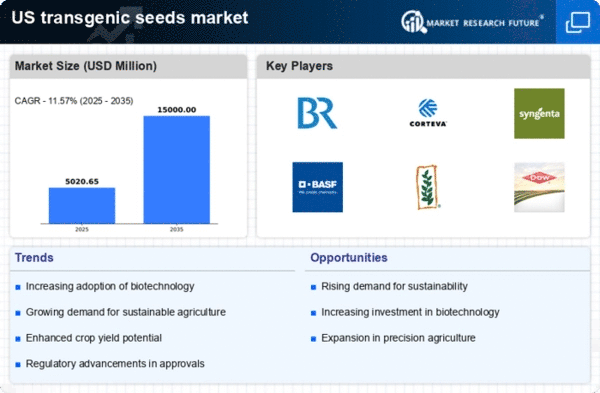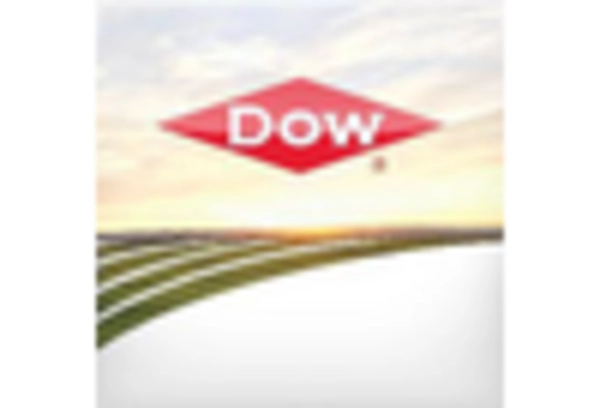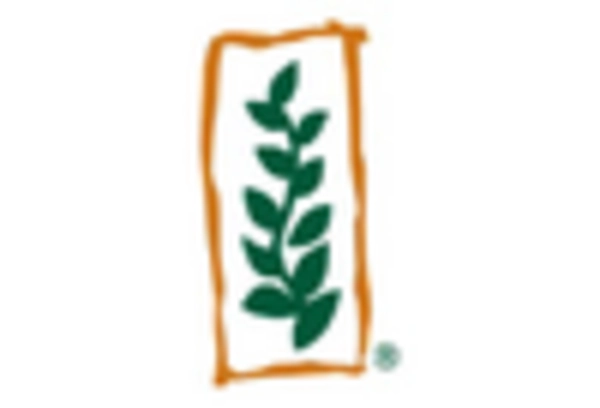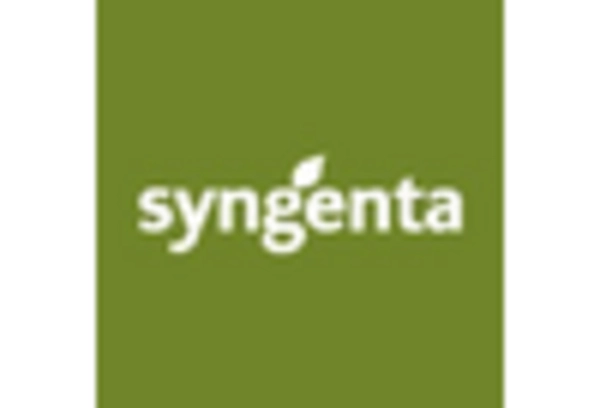Climate Change Adaptation
As climate change continues to pose challenges to agriculture, the transgenic seeds market is positioned as a critical component in adaptation strategies. Crops engineered to withstand extreme weather conditions, such as droughts and floods, are becoming increasingly vital. The US agricultural sector is projected to face significant yield losses due to climate variability, with estimates suggesting a potential decrease of up to 50% in some regions. Transgenic seeds that incorporate traits for resilience against these changes are likely to gain traction, thereby driving growth in the transgenic seeds market. This adaptation not only ensures food supply stability but also supports farmers in mitigating risks associated with climate change.
Supportive Policy Frameworks
supportive policy frameworks are promoting the use of biotechnology in agriculture, influencing the transgenic seeds market. In the US, government initiatives aimed at fostering innovation in agricultural practices have created a conducive environment for the development and adoption of transgenic seeds. Regulatory bodies are increasingly streamlining approval processes for genetically modified organisms, which facilitates quicker market entry for new seed varieties. This supportive landscape is crucial for the growth of the transgenic seeds market, as it encourages investment in research and development. As policies continue to evolve in favor of biotechnology, the market is expected to expand, providing farmers with access to advanced seed technologies.
Rising Agricultural Efficiency
the transgenic seeds market is seeing increased demand due to the need for agricultural efficiency. Farmers are seeking ways to enhance crop yields while minimizing resource usage. Transgenic seeds, engineered for traits such as pest resistance and drought tolerance, offer solutions that align with these goals. In the US, the adoption of transgenic crops has led to an estimated increase in yields by 20-30% compared to conventional varieties. This efficiency not only supports food security but also contributes to sustainable farming practices, making the transgenic seeds market a pivotal player in modern agriculture.
Economic Viability of Transgenic Crops
The economic viability of transgenic crops is a significant driver for the transgenic seeds market. Farmers are increasingly recognizing the financial benefits associated with planting genetically modified seeds. These crops often require fewer inputs, such as pesticides and fertilizers, leading to reduced operational costs. In the US, studies indicate that farmers can save up to $100 per acre when utilizing transgenic seeds compared to traditional varieties. This cost-effectiveness, combined with higher yields, enhances profitability and encourages more farmers to adopt transgenic crops. As economic pressures mount in the agricultural sector, the transgenic seeds market is likely to see continued growth as a result of these financial incentives.
Technological Advancements in Seed Development
the transgenic seeds market is experiencing rapid technological advancements in seed development. Innovations such as CRISPR and gene editing are revolutionizing the way seeds are engineered, allowing for more precise modifications. These technologies enable the creation of crops with enhanced traits, such as improved nutritional content and resistance to diseases. In the US, the market for genetically modified seeds has seen a growth rate of approximately 10% annually, reflecting the increasing acceptance of biotechnology in agriculture. As these technologies continue to evolve, they are expected to further propel the transgenic seeds market, providing farmers with tools to meet the demands of a growing population.

















